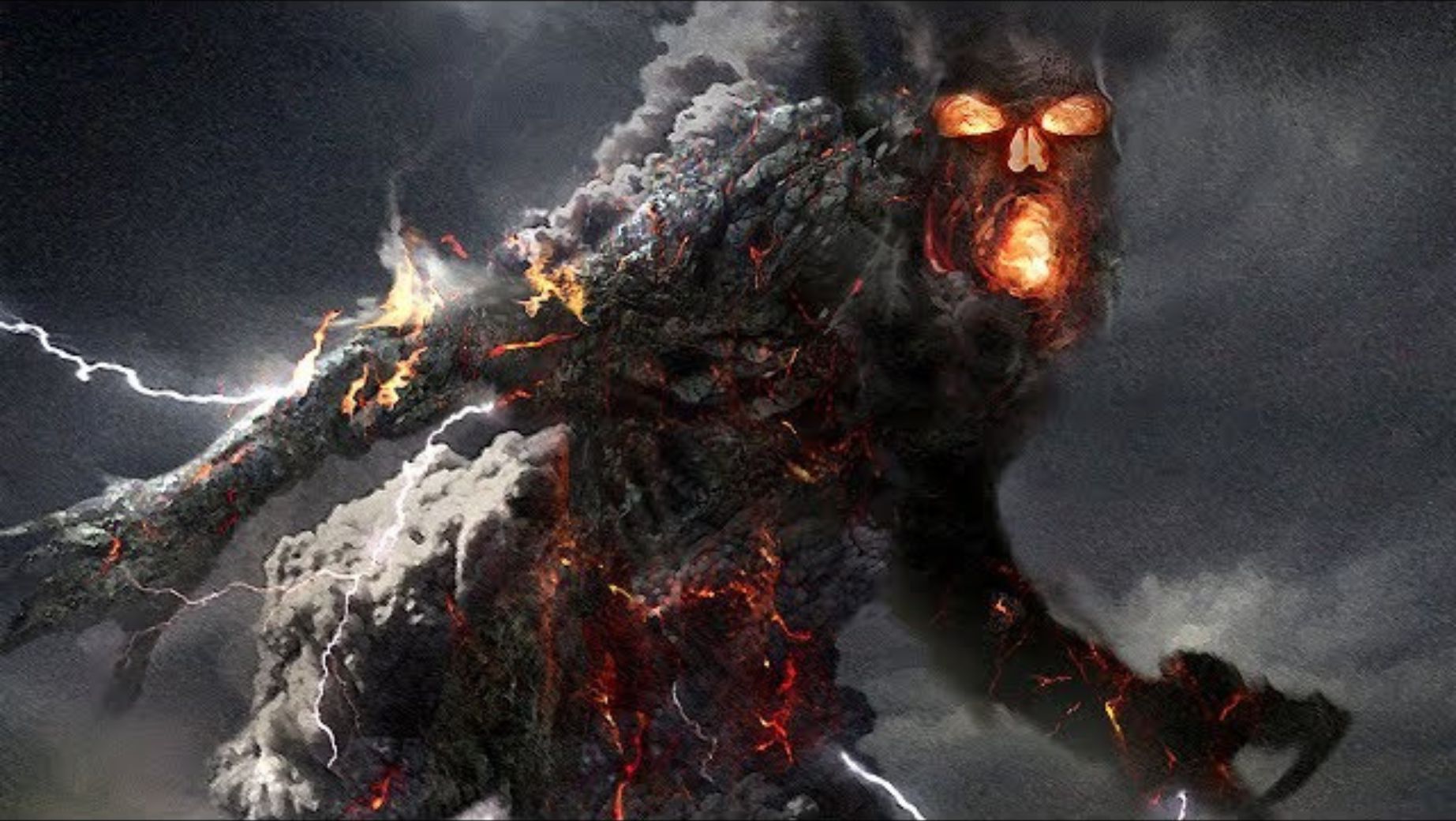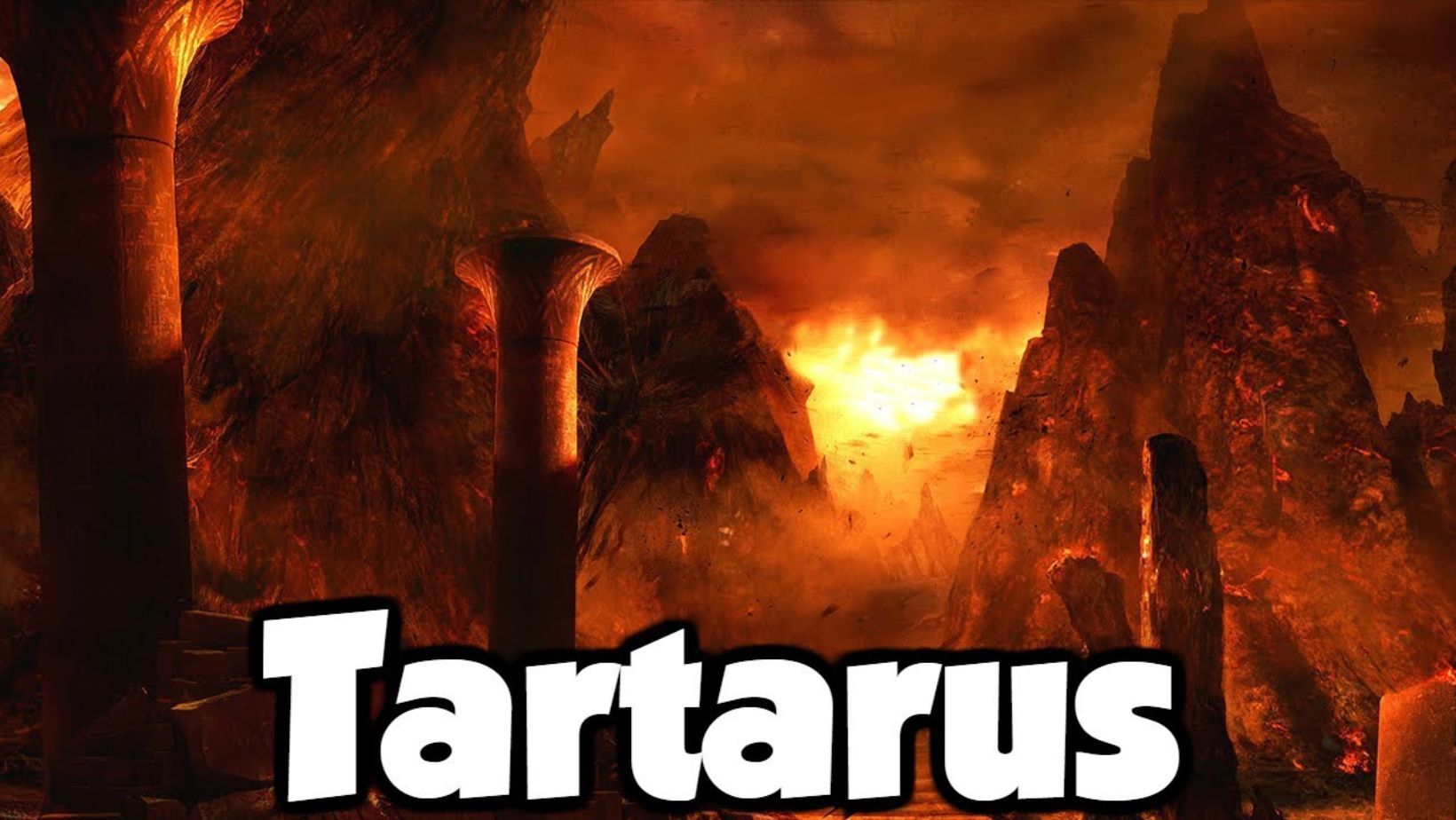In the beginning, there was nothing but a vast, dark, and formless expanse – a primordial void known as Chaos in Mythology. This is where our story begins, at the very dawn of creation itself.
Chaos, in Greek mythology, was more than just a state of disorder or confusion. It was the very source of all existence, the womb from which the entire cosmos was born.
So, let’s take a journey back to the beginning of time and unravel the mysteries of this fascinating concept. Trust me, you’re in for a treat!
Table of Contents:
- What Is Chaos in Greek Mythology?
- Chaos as a Primordial Deity
- Hesiod’s Theogony and the Portrayal of Chaos
- Ovid’s Metamorphoses and the Roman Perspective on Chaos
- The Offspring of Chaos in Greek Mythology
- Chaos and the Creation of the Universe
- Conclusion
What Is Chaos in Greek Mythology?

Chaos in mythology is a fascinating concept. It’s the very beginning of everything, the primordial void that existed before the universe was born.
The Concept of Chaos: Chaos in Mythology
In Greek mythology, Chaos was the first thing to exist. It wasn’t a god or a place, but rather a state of nothingness and confusion. From this primordial chaos, the first gods emerged and the universe began to take shape.
The Role of Chaos in Greek Creation Myths
Chaos played a crucial role in Greek creation myths. According to Hesiod’s Theogony, one of the earliest works of Greek literature, Chaos was the origin point for the entire cosmos. It was from Chaos that Gaia (Earth), Tartarus (the Underworld), and Eros (Love) came into being.
Etymology of the Word Chaos
The word “chaos” comes from the ancient Greek word “khaos,” which meant “void” or “chasm.” Over time, the meaning of the word evolved to represent a state of disorder or confusion. It’s fascinating to think about how this primordial concept has shaped our understanding of the universe and our place in it.
Chaos as a Primordial Deity: Chaos in Mythology
Chaos as the First Primordial God
In Greek mythology, Chaos was considered the first primordial god. It existed before any other deity and was the source from which all things originated. As the embodiment of the void, Chaos represented the raw potential and infinite possibilities of the universe.
Relationship Between Chaos and Other Primordial Deities
Chaos existed alongside other primordial deities such as Gaia (Earth), Tartarus (the Underworld), and Eros (Love). These entities emerged from Chaos and played vital roles in shaping the structure of the universe. It’s interesting to think about how these primordial forces worked together to create the world as we know it.
Significance of Chaos in the Greek Pantheon: Chaos in Mythology
Although Chaos was not actively worshipped like other Greek gods, its significance as the source of all creation cannot be overstated. Without Chaos, there would be no universe, no gods, and no humanity. It’s the foundation upon which the entire Greek mythological framework is built.
Hesiod’s Theogony and the Portrayal of Chaos: Chaos in Mythology
Overview of Hesiod’s Theogony
Hesiod’s Theogony is one of the most important works of ancient Greek literature. Written around the 8th century BCE, this epic poem describes the origins of the gods and the creation of the universe. It’s a fascinating glimpse into how the ancient Greeks understood their world and their place in it.
Description of Chaos in the Theogony: Chaos in Mythology
In the Theogony, Hesiod describes Chaos as the first entity to exist. He writes, “Verily at the first Chaos came to be, but next wide-bosomed Earth, the ever-sure foundations of all the deathless ones who hold the peaks of snowy Olympus.” It’s a powerful image of the primordial void giving birth to the world as we know it.
Comparison with Other Ancient Greek Sources
While Hesiod’s Theogony is the most well-known source for the concept of Chaos in Greek mythology, other ancient authors also mention this primordial entity. Homer, for example, refers to Chaos in his epic poems, although his portrayal is slightly different from Hesiod’s. It’s fascinating to see how different writers interpreted this fundamental concept.
Ovid’s Metamorphoses and the Roman Perspective on Chaos: Chaos in Mythology
Ovid’s Depiction of Chaos
The Roman poet Ovid offers a different perspective on Chaos in his epic poem Metamorphoses. He describes Chaos as “a shapeless, confused mass” from which the elements of the universe were separated and ordered. It’s a vivid image of the primordial void as a state of disorder and confusion.
Differences Between Greek and Roman Interpretations
While the Roman interpretation of Chaos was heavily influenced by Greek mythology, there were some notable differences. Roman authors tended to focus more on the idea of Chaos as a state of disorder that needed to be tamed and structured. This reflects the Roman emphasis on order and civilization.
Influence of Ovid’s Work on Later Perceptions of Chaos: Chaos in Mythology
Ovid’s Metamorphoses had a significant impact on later Western literature and art. His depiction of Chaos as a “shapeless heap” helped shape the way this concept was understood and represented in subsequent centuries. It’s a testament to the enduring power of mythology to capture the human imagination.
The Offspring of Chaos in Greek Mythology: Chaos in Mythology
Nyx (Night)
According to Hesiod, Nyx (Night) was one of the first entities to emerge from Chaos. She was a powerful and mysterious goddess who brought darkness to the world. It’s said that even Zeus, the king of the gods, feared her.
Erebus (Darkness)
Erebus, the personification of darkness, was another offspring of Chaos. He was often associated with the Underworld and was sometimes considered the father of Charon, the ferryman who transported souls across the river Styx. It’s a reminder of the close connection between Chaos and the realm of the dead.
Gaia (Earth): Chaos in Mythology
Gaia, the primordial goddess of the Earth, also emerged from Chaos. She was the mother of the Titans and many other mythological beings. As the source of all life, Gaia represented the creative potential that arose from the primordial void.
Tartarus (Underworld)

Tartarus, the deep abyss that served as a dungeon for the Titans, was another entity that came from Chaos. It was a place of punishment and suffering, far below the realm of Hades. The fact that Tartarus emerged from Chaos suggests a connection between the primordial void and the darker aspects of existence.
Other Descendants of Chaos
Other notable offspring of Chaos include Eros (Love), who played a crucial role in the creation of life, and Hemera (Day), who brought light to the world. These entities represent the diversity of creation that emerged from the primordial void.
Chaos and the Creation of the Universe: Chaos in Mythology
The Separation of Elements
In Greek creation myths, the universe began to take shape when the basic elements (earth, air, water, and fire) were separated from the primordial Chaos. This process of differentiation allowed for the formation of distinct realms and entities. It’s a powerful image of order emerging from disorder.
Formation of Earth and Sky: Chaos in Mythology
As the elements separated, Gaia (Earth) and Ouranos (Sky) emerged as the first divine couple. Their union gave rise to the Titans, who would later play a significant role in shaping the world. The separation of Earth and Sky represents a crucial step in the creation of the universe.
Emergence of the Olympian Gods
The Olympian gods, led by Zeus, emerged victorious after a series of battles against the Titans. These younger gods represented a new order and brought stability to the cosmos. Their reign marked the end of the primordial era that began with Chaos and the beginning of a new age of divine rule.
The story of Chaos in Greek mythology is a testament to the enduring power of creation myths to capture the human imagination. From the primordial void to the birth of the gods and the formation of the universe, this ancient tale continues to resonate with us today. It’s a reminder of the fundamental questions that have always haunted humanity: Where did we come from? How did the world begin? And what is our place in the grand scheme of things?
As someone who has studied Greek mythology for many years, I find the concept of Chaos endlessly fascinating. It’s a symbol of the raw potential and infinite possibilities that exist at the heart of creation. And yet, it’s also a reminder of the darkness and disorder that lurk beneath the surface of existence.
In many ways, the story of Chaos is a metaphor for the human condition. We all emerge from the void of non-existence and must find our way in a world that is often confusing and chaotic. But just as the gods brought order to the cosmos, we too have the power to shape our own lives and create meaning out of the chaos.
So the next time you find yourself feeling lost or overwhelmed, remember the lesson of Chaos in Greek mythology. Embrace the uncertainty and the possibilities that life offers. And know that, like the gods themselves, you have the power to create something beautiful and meaningful out of the void.
Key Takeaway: Chaos in Mythology
Chaos in Greek mythology is the primordial void from which everything, including gods and the universe, emerged. It symbolizes both raw potential and disorder.
Conclusion: Chaos in Mythology
Chaos in mythology is a testament to the human imagination and our eternal quest to understand the origins of the universe. It’s a concept that has captivated minds for millennia, from ancient Greek poets to modern-day scholars.
Through the lens of myth, we see Chaos not as a frightening void, but as a source of infinite potential – the primordial womb from which all of creation sprang forth.
So the next time you hear someone say “it’s all chaos,” just smile and remember: without Chaos, there would be no universe, no gods, and no us. And that, my friend, is a beautiful thing.

